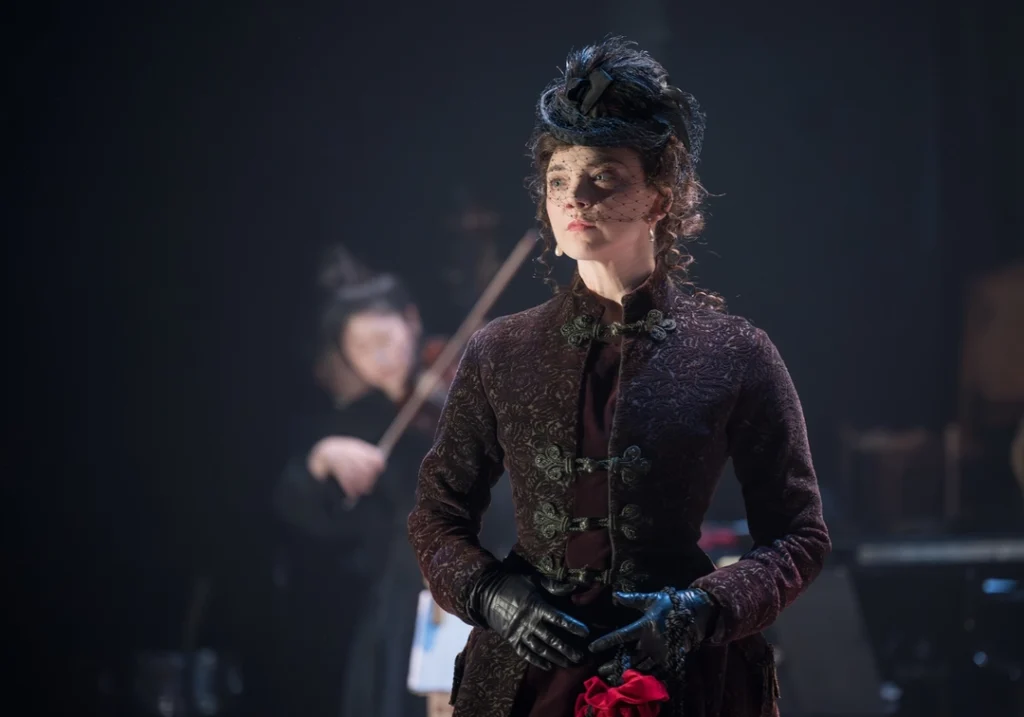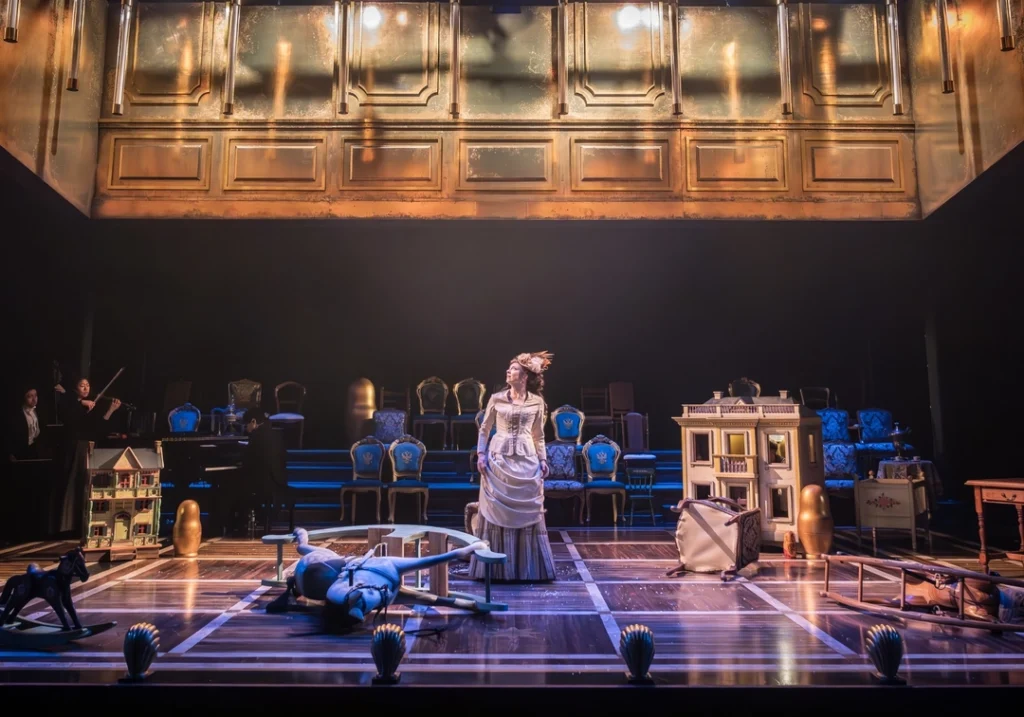Game Of Thrones star soars in clipped Tolstoy
⭑⭑⭑

For the second time in less than a week, I’ve sat through a play more than three hours long. Stereophonic which I saw a few days ago was, for me, too long. But Anna Karenina was actually too short. It barely gave Tolstoy or Natalie Dormer the chance to show off their brilliance. It was a good try but fell short of doing justice to a great novel.
At three hours, this stage adaptation by Phillip Breen can only hope to present a fraction of Tolstoy’s novel which runs to 38 hours on Audible. Mr Breen has chosen to try to tell the stories of all three of the main women: Anna, Dolly and Kitty. As a result none of them get a full swing at their characters in the time available.
Nevertheless the actors give impressive performances, not least Natalie Dormer as Anna who, within the scope she is given, brings a tornado of emotion to the role, so much so you find yourself longing for her next moment on stage. She has a rich colorata voice like a full bodied red wine, and her piercing eyes and curling mouth give passion to her words.
Naomi Sheldon as Dolly is wonderfully over the top as she harangues her useless philandering husband, bemoans her ageing body and rails against everything with a tirade of very modern expletives. Incidentally I thought the use of contemporary, particularly sexual, terms, while anachronistic, did work well as shorthand for the characters’ feelings.
Kitty was the most one dimensional of the main protagonists but Shalisha James-Davis made the most of this woman constantly on the verge of a nervous breakdown, as she assesses her obsessive suitor-then-husband.
The actors certainly convey the essence of their characters but inevitably much colour is lost. A great deal of narrative is also lost to what much of the time becomes a plot summary.
So, what is the plot? Anna is dissatisfied with ordinary family life and her husband Karenin, a seemingly nice, tolerant chap, and nicely played by Tomiwa Edun. She leaves him for a more passionate life with her lover Vronsky, whose fire cracker character is beautiully conveyed by Seamus Dillane. However, this being the mid 19th century, and she finds herself ostracised from society and separated from her children. Worse still, she begins to doubt Vronsky’s faithfulness. In fact all the men seem to have a roving eye whether they act upon it or not.
Two other unhappy relationships are explored. Levin, played with passion by David Oates, loves Kitty but she resists him. She thinks he will be unfaithful because of his past record of bed hopping. Eventually she is reassured and marries him but her doubts continue right up to a traumatic childbirth.
Dolly is already well into a marriage and has many children. Her husband Stiva gambles and womanises, in a splendidly spineless characterization by Jonnie Broadbent, and she constantly rails at him and at her own lack of attractiveness.
The problem with this filleting approach is that we lose much of the complexity of the characters and their lives. Rather than the flesh, we get the bare bones of the plot. When it comes down to it, plot is only the structure on which good novels or plays build their characters’ development. In this adaptation we are given three women who don’t trust their partners, shout and cry a lot, and end more or less happier than they began. And Tolstoy’s novel is a great deal more than that.

The other challenge is how to design it. The open Chichester stage doesn’t allow for solid scenery, except at the very back. So how to present horses and trains, very important components of this story? Since the adaptor Phillip Breen is also the director, we can assume he had a hand in the approach.
Although Matt Jones’ design is busy with many chairs that are moved around, the most noticeable aspect is a nursery theme. Children’s toys are scattered round the stage- dolls houses, horses, a train set. It serves to emphasise, perhaps, that women in this period are still treated like children in terms of their rights. I’m pretty sure the doll’s houses were meant to remind us of Ibsen’s play about another woman trapped in domesticity, a part which Natalie Dormer surely must play. The train set reminds us that the world is changing: modern inventions such as the railways and electricity have arrived. While the former is central to the story, the latter is also given its moment in the spotlight, so to speak, in the form of tubes of light which descend and form, of course, a cage.
The wooden horses come in handy as substitutes for the real thing but frankly the sight of a man shooting an ‘injured’ one was comical- shades of Monty Pyhton and Spamalot. And when Les Dennis in a delightful cameo as the world weary servant Petka drives a carriage drawn by rocking horse, it’s silly rather than amusing. I would rather have used my imagination more, something which we had to do, when it came to the all important train.
I liked many of the effects. The trio of Japanese musicians who played Paddy Cunneen’s edgy music. The way the large cast ( and there are nineteen named actors) sat in chairs at the back of the stage, especially the moment they scraped cutlery together during a dining scene.
There are too many short scenes which become messy but there are some scenes which really hit home, like Anna’s secretive visit to see her son. A rare moment when you really understand profoundly what she has given up.
This adaptation of Tolstoy’s novel is a brave attempt but, like Scott’s trek to the South Pole, it falls short of total success.
Anna Karenina can be seen at Chichester Festival theatre until 28 June 2025. Buy tickets directly here.
Paul was given a review ticket by the theatre.